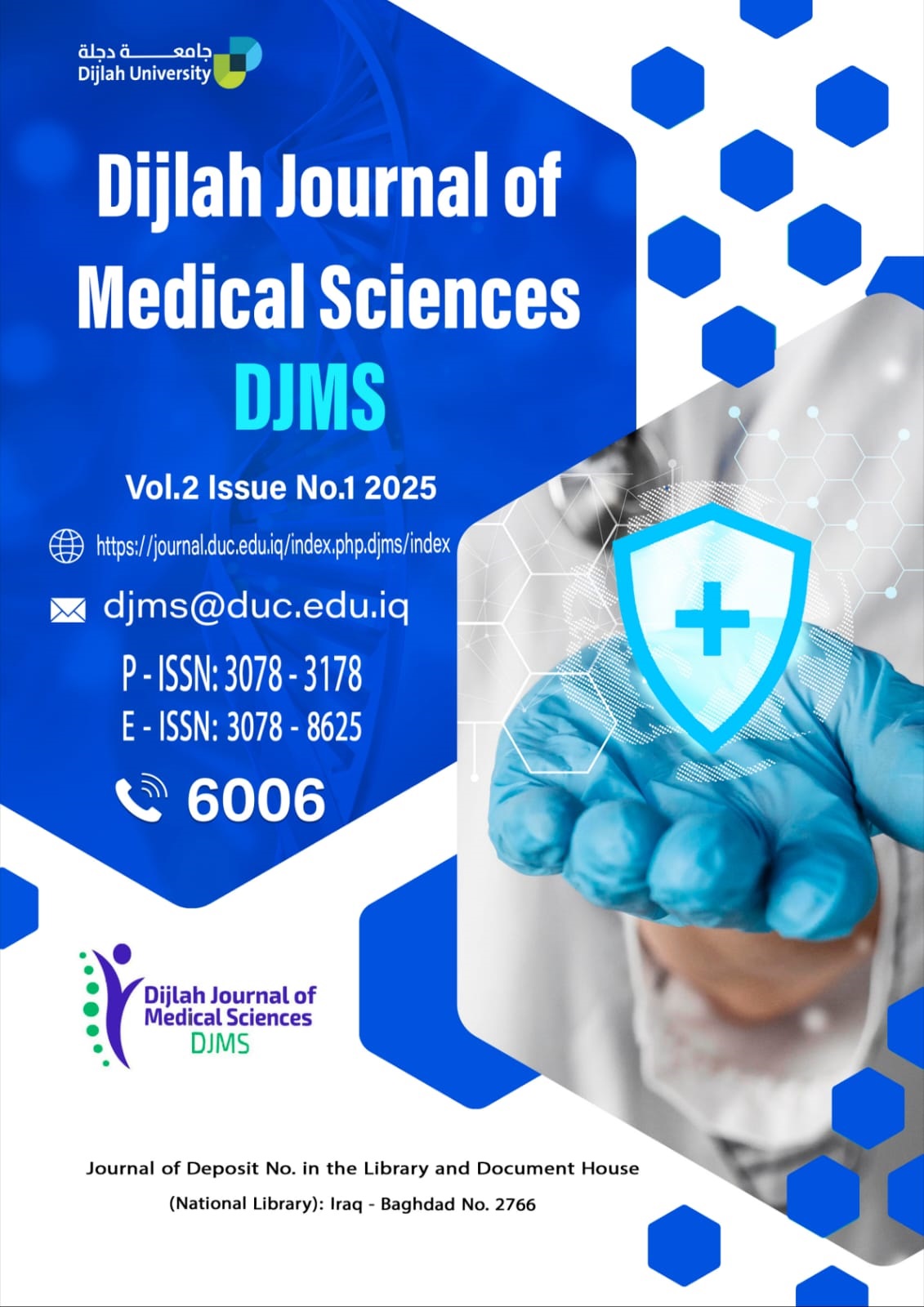The Role of Obesity in the Development of Type2 Diabetes
Zainab Samir Yahya Hammo, Abdulrahman Jihad Mansoor and Mina Dawood Mustafa
DOI:
https://doi.org/10.65204/DJMS-TRO-DTKeywords:
Obesity, Diabetes Mellitus, HbA1c, Adiponectin, Lipid profilesAbstract
Obesity is a major cause of Type 2 Diabetes Mellitus (T2DM) and there is growing evidence that adiposity is a determinant of insulin resistance and metabolic complications. The present study was conducted to explore the effect of obesity severity on the onset of Type 2 Diabetes Mellitus (T2DM). The cross-sectional study was conducted in Tikrit, Iraq, and the data were collected from the laboratory records of Tikrit Teaching Hospital and different clinics in the city between September 2024 and January 2025. A total of 120 male patients 30–60 years of age. Lipid profiles were done using an automated analyzer and adiponectin was measured by ELISA. HbA1c and fasting blood sugar (FBS) were used to assess glycemic control; they measured in the morning, fasting at least 8 hours. Metabolic parameters were found to worsen with the severity of obesity. Lipid profile, FBS and HbA1c levels were all higher across obesity categories (p < 0.01), while HDL and adiponectin levels were lower. In obese patients, HbA1c was positively associated with TG (R = 0.640, p < 0.01) and VLDL (R = 0.525, p < 0.01) and inversely related with HDL (R = -0.519, p < 0.01) and adiponectin (R = -0.611, p < 0.01). The prevalence of hypertension, coronary heart disease, and diabetes was found to rise with the severity of obesity. The study concludes that obesity has a severe impact on metabolic dysfunction and HbA1c is a good marker of worsening lipid and glycemic status. The adverse metabolic effects of obesity may, therefore, be prevented by adiponectin.

